Tag: Decade: 1990s
-
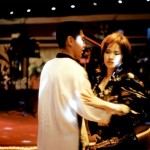
Good Men, Good Women (1995)
The first cut in Good Men, Good Women establishes several dichotomies that, over the next 100 minutes, are beautifully dismantled for explicitly political purposes.
-
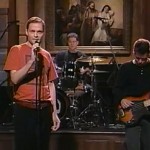
Grace, Too
It’s something about that bass line and the way that Gord Downie unleashes the line, “Armed with will and determination / And grace, too,” that rips me up.
-
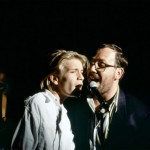
La Promesse (1996)
La Promesse is a wonderful film whose beauty is born from the Dardennes’ suffusion of honesty and moral complexity into standard narrative conventions: the simple two-act structure, Igor’s bildungsroman, the basic quest for human connection.
-
American Pastoral (1997)
What most fascinates me about this novel—along, of course, with Roth’s beautiful prose—is its inability, ultimately, to make any sense of the Swede’s tragedy.
-
Black Water (1992)
But Black Water is first and foremost a novel about Kelly Kelleher and, by analogy, all other women who have been abused, exploited, and discarded by the powerful and by the media that report it.
-

The Scent of Green Papaya (1993)
The film actually becomes more interesting to me if I imagine Mui in twenty years, her beauty faded, her husband gone, and her spirit empowered.
-

Vive L’Amour (1994)
Walker Percy characterizes the 20th century American novel as a recurring investigation of “the essential loneliness of man.” It’s hardly an original conceit, but I was reminded of it constantly yesterday as I watched Vive L’Amour.
-
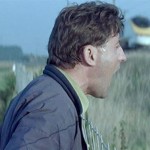
L’Humanite (1999)
Walt Whitman would be proud. It’s remarkable to hear echoes of Whitman in the voice of a contemporary filmmaker, but there he is, still singing the “body electric” and sounding his “barbaric yawp.”
-
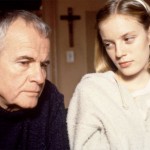
The Sweet Hereafter (1997)
There’s a scene in The Sweet Hereafter in which Mitchell Stephens — a big city ambulance chaser played to perfection by Ian Holm — sits in a cramped airplane seat, telling the passenger beside him a story from when his daughter, Chloe, was a child.
-
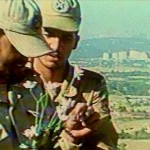
A Taste of Cherry (1997)
Mr. Badii (played by Homayon Ershadi, an architect friend of Kiarostami) is a middle aged man who spends much of the film driving through the hill country surrounding Tehran, looking for someone to help him commit suicide.
-
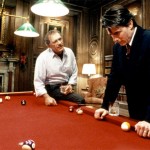
Eyes Wide Shut (1999)
The following was written for a graduate seminar on James Joyce and W.B. Yeats. Please forgive the fumbling psycho-babble. I think it actually serves a very legitimate reading of this film.
-
The Films of Andrei Tarkovsky: A Visual Fugue (1994)
Johnson’s and Petrie’s study is that extremely rare beast: an academic study that is informative, objective (or as close as anyone can get), and readable.
-
Double Lives, Second Chances: The Cinema of Krzysztof Kieslowski (1999)
Insdorf sets out with the right questions in mind: How was Kieslowski’s body of work shaped by personal experience, particularly by his life under Communism? What other directors, artists, and thinkers shaped his aesthetic? What preoccupations, both ideological and stylistic, form the backbone of his work? What precipitated his move from documentary to narrative film, and how did each influence the other? Unfortunately, in attempting to answer all of these questions (and in only 180 pages), she fails to address any of them adequately.
-
Angels in America: Millennium Approaches (1992)
Note: These are my initial thoughts on Millennium Approaches, written as a journal assignment in the fall of 1998. I’m tempted to revise it or pull it down altogether, but I’ve decided to keep it up here as an artifact of sorts.
-
In the Time of Butterflies (1994)
“Why, they inevitably ask in one form or another, why are you the one who survived?” (page 5). Before meeting the sisters of In the Time of Butterflies, before even learning their names, we know that they have lived lives and died deaths worth telling.